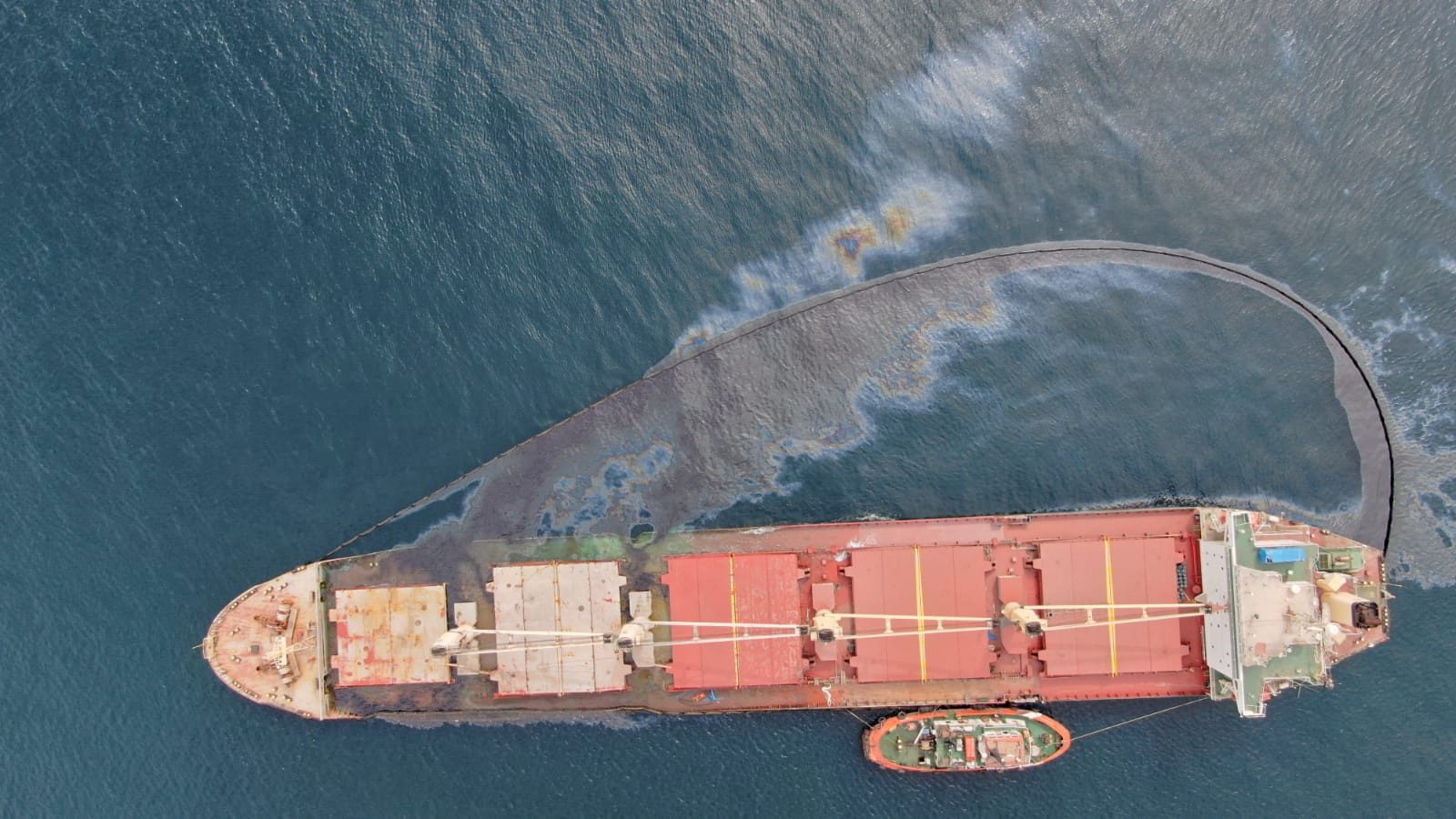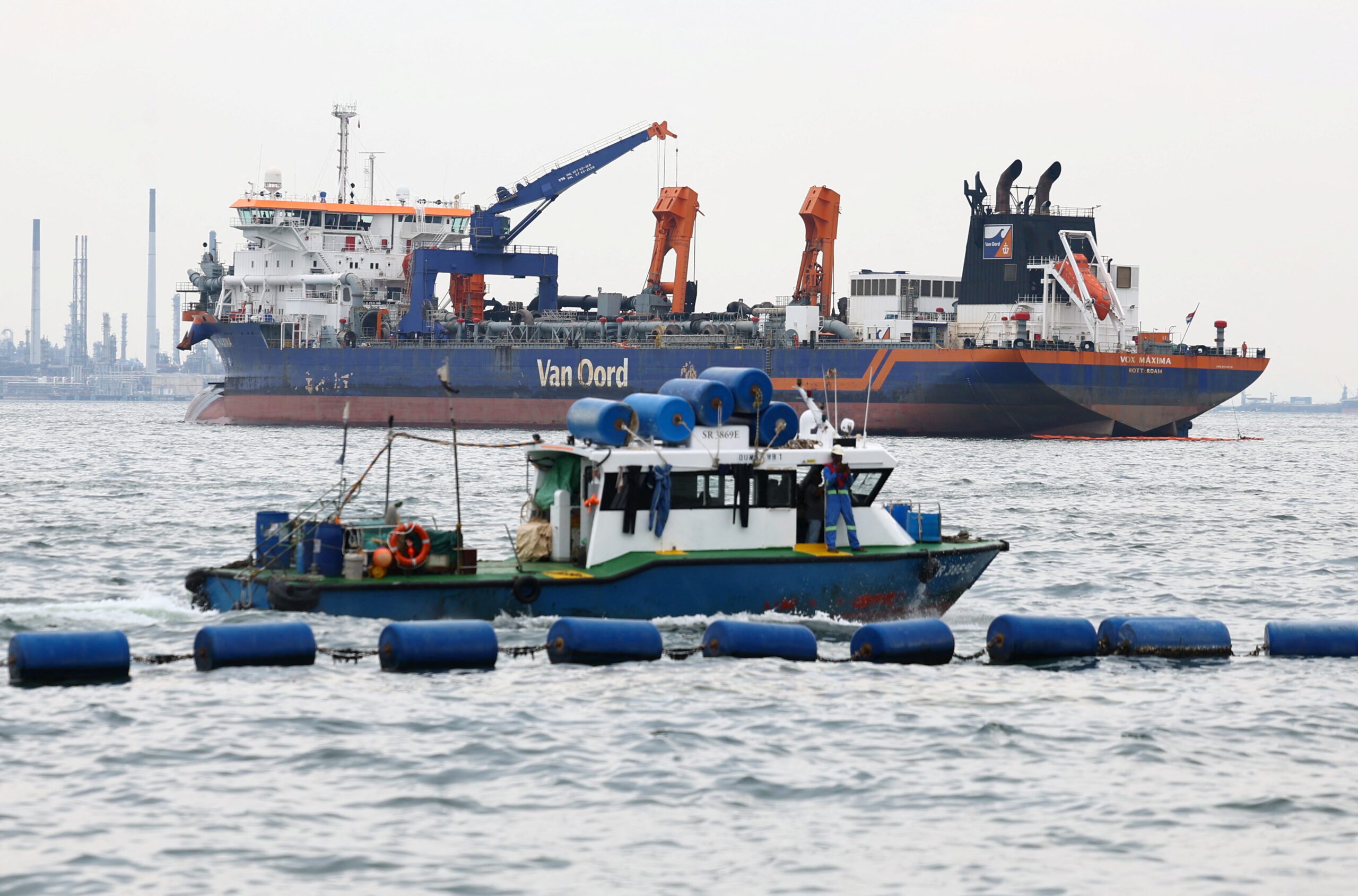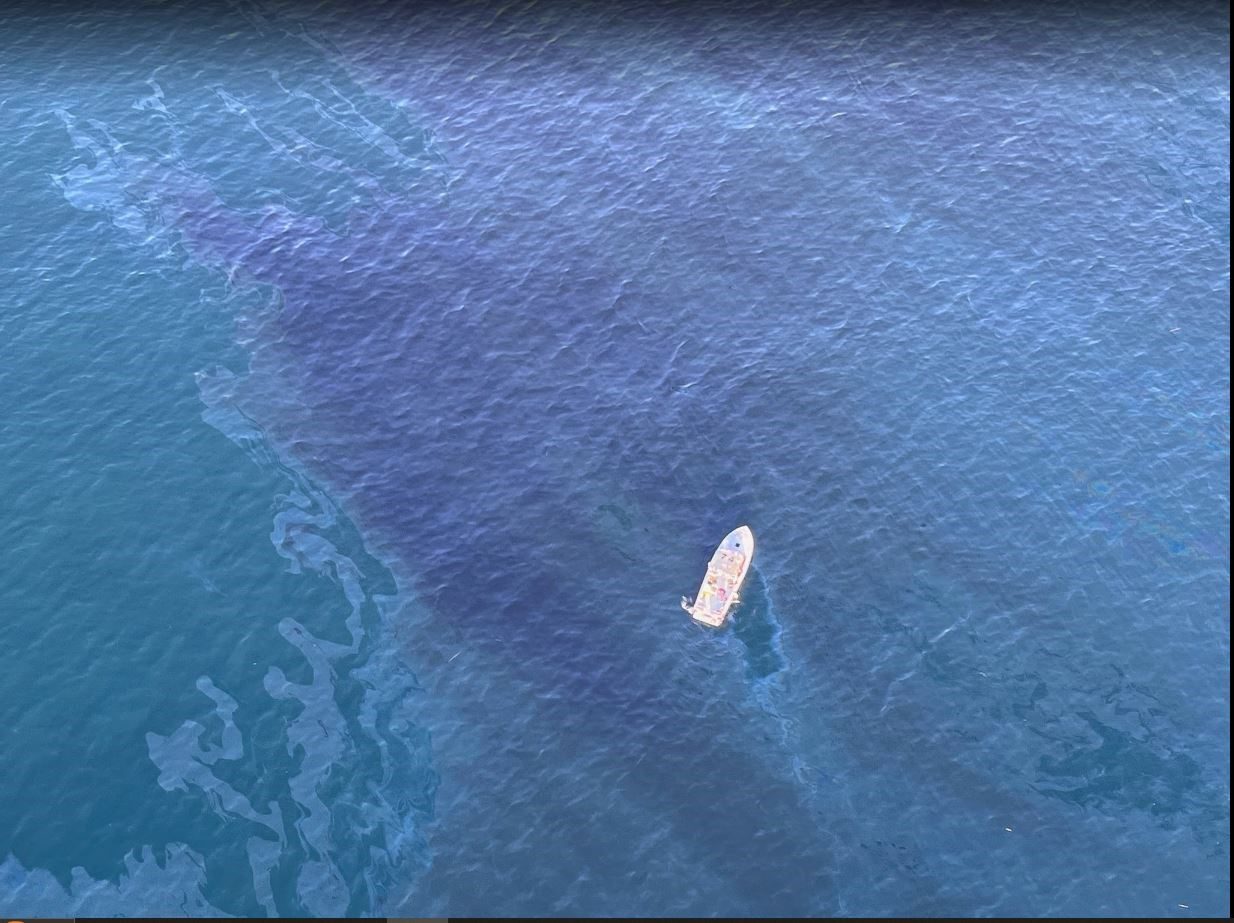By James Stavridis (Bloomberg) Most people focus on the land and air aspects of the war in Ukraine, naturally enough — they are vivid and constantly being recorded and broadcast across the world’s screens. But there are significant maritime activities occurring as well, from active combat (including the sinking of the Russian Black Sea flagship, the Moskva, last April) to commercial shipping of grains under a complex trading agreement brokered between Russia and Ukraine.
Another watery part of the war, occurring on oceans around the world, is the smuggling of Russian oil, heavily sanctioned in the West, in so-called shadow tankers. The ships operate without transponders — thus avoiding detection and tracking — and the insurance, regulation and national oversight required of legitimate commercial vessels. A good example is a 26-year-old tanker called the Turba, which hasn’t had a full inspection since 2017 but has been reported collecting heavy oil at St. Petersburg.
The Turba is part of a huge ghost fleet of hundreds of uncredentialed vessels pressed into service by Moscow, which can no longer rely on Western companies to haul its oil. By one estimate, there are more than 500 such vessels representing over 10% of the global commercial activity for transporting hydrocarbons.
Also read: ‘Shadow’ Tanker Fleet Raises Risk of Accidents
When I was supreme allied commander of the North Atlantic Treaty Organization, I worked extensively with the International Maritime Organization, located in London and part of the United Nations umbrella of international bodies seeking to bring order to the chaotic seas. At the time, I was struck by the regularity with which the major shipping companies took their big tankers out of service at around 20 years of life (a US Navy warship, on the other hand, will routinely go 30 years or more, despite its much more complicated mission and systems).
Now I am on the board of the Onassis Foundation, which operates a fleet of tankers and other vessels, and I see the logic behind this: The downside of a potential environmental catastrophe, along with the expense of continuous repairs and inspections, outweigh the economics of using these hulls past two decades. Indeed, many companies start looking to scrap the ships from around the 15-year mark. While occasionally shippers will stretch beyond the two-decade point, that is generally rare. The sea simply beats the hell out of these hulls, and the natural corrosion of saltwater compounds the problem.
All reputable companies use a system of “special surveys” — detailed inspections that occur at least every five years when a ship is young, and more frequently as it ages. The inspections are thorough and very expensive — costing as much as $4 million. But because of the sanctions on Russian energy products (and the capped price of Russian oil that can be legitimately transported), an entire industry of opaque entities is buying up older, uninspected tankers and pushing them into Russian President Vladimir Putin’s service.
To avoid scrutiny, the oil transfers are often done at sea, a very risky operation. I did hundreds of such transfers between Navy ships as a sea captain — they are an operational necessity — and they are nerve-wracking events with the possibility of a major environmental calamity hovering over them. Compounding the problem is the system allowing vast numbers of ships to fly so-called flags of convenience from small countries that lack the means to enforce even basic safety standards.
The result is hundreds of vessels routinely hauling Russian oil, primarily to China and India, while avoiding any serious oversight. And the danger of a serious catastrophe is not theoretical. In 2002, a 26-year-old tanker called the Prestige, operating under the Bahamian flag, broke apart and leaked more than 50,000 metric tons of fuel oil along the Spanish and Portuguese coasts, with a massive effect on marine life, commercial fishing and tourism that lasted years.
The international community needs to crack down on the new shadow fleet. It is not only permitting Putin to fund his illegitimate invasion; it is a ticking time bomb environmentally.
The IMO should convene an immediate dialog of all major flag nations and lay out the dangers of this illicit behavior, demanding fresh inspections and switched-on transponders. China and India (and other consumers of Russian oil) should be strongly encouraged to stop facilitating these risky transfers. If necessary, Western coast guards and navies should be empowered by the UN to enforce international standards for safe fueling operations, both in port and on the high seas. We must address this global maritime crime scene.
James Stavridis is a Bloomberg Opinion columnist. A retired U.S. Navy admiral, former supreme allied commander of NATO, and dean emeritus of the Fletcher School of Law and Diplomacy at Tufts University, he is vice chairman of global affairs at the Carlyle Group. He is the author most recently of “To Risk It All: Nine Conflicts and the Crucible of Decision.” @stavridisj © 2023 Bloomberg L.P.
Unlock Exclusive Insights Today!
Join the gCaptain Club for curated content, insider opinions, and vibrant community discussions.

 Join The Club
Join The Club












